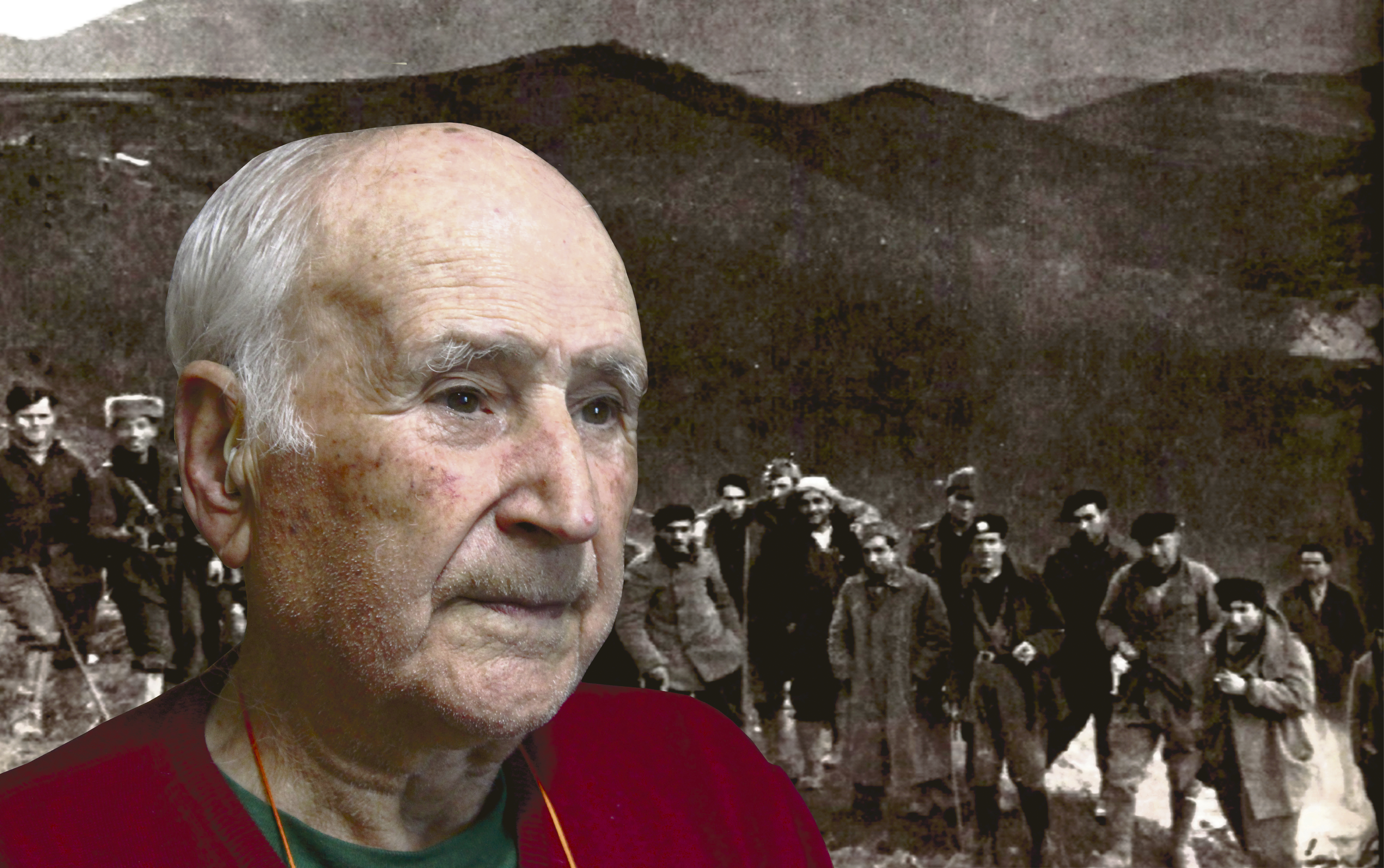
- During the Asturian Revolution of 1934, Eusko Gudarostea and the war against the fascist military lived in Lezama a passionate and active communist.

Matthew Balbuena died yesterday, Monday, according to the newspaper Naiz. Of Asturian origin (he participated in the revolutionary strike of 1934 being very young), lived in Lezama for years, taking care of his garden and garden in a hamlet, among other things.
In fact, he was in Amurrio during the Civil War as the head of the battalion Leandro Carro and participated in the bloody fights of the San Pedro and Txibiarte Mountains, among others.
Balbuena has died at 110 years of age, but not anonymously, according to the same sources. In fact, he received the Golden War in 2018 and has been an active intellectual entrepreneur until recently. He wrote several books, although he was 100 years old, and was a Planet Prize finalist in 1964.
Life of communist militancy
Mateo Balbuena started military in Asturias at the age of 18. Two years later, he participated in the October Revolution of 1934, in which the Spanish army militarily crushed the revolutionary strike.
Two years later, they were in Barakaldo, at the time when the far-right military began the coup. In the early hours of the morning, Balbuena responded and went to Donostia-San Sebastián. There he fought against the military who entrenched themselves in the Hotel Maria Cristina.
Then he was in Amurrio. They occupied Refor and created three battalions there, Araba -Abertzaleak -, Bakunin -anarchists - and Leandro Carro -communists. Balbuena was one of the heads of Communist unity.
He participated in bloody fighting in Aiaraldea, San Pedro and Txibiarte. However, he had to leave Amurrio: "We were in the town, until the Italians took over Bermeo. We fought in Murgia and saw that they too had little discipline, we laughed when we saw that they had come to us with a Spanish symbol, in the platoon. That's right, then we were bombed. We leave the corpses behind, but the machine gun is not! We also fought in Ganekogorta, on the verge -- and from there we went to Uribe Kosta. Eventually I was injured in Torrelavega and then I was taken to Asturias."
In fact, the wounds were not so serious, but he was about to die, as he himself recalled: "On the leg and on the left side of the chest. If I believed in God, I would say that my survival was a miracle, because I was wearing a belt of defensive bombs. It didn't explode. We reorganized Figueras and went to Guadalajara."
Balbuena did not surrender until the end of the war and once the defeat of the Republic came, he tried to move to the French state, the II. To fight in World War. In any case, he was intercepted by the Civil Guard after a long journey: "I tried to get to France. I would walk at night and day sleep in the caves or where I could. I took the pistol five times to escape. I had nothing to eat, I changed my watch for bread. Broton, for example, was shot by the Civil Guard. After a while I met a walker. That gave me his sandwich, but then he informed the Civil Guard. That night I was arrested while I was asleep.
Repression
Repression followed arrest. Still, Balbuena was very lucky. Sentenced to 12 years ' imprisonment for attempted murder, he was imprisoned in Huesca, Jaca and Larrinaga. In the latter prison, the information on his behalf came from Barakaldo alleging that he did not go to the local bars and that he was released on parole.
Then he was tried in Bilbao: My lawyer asked the prosecutor to hit him hard. Think about the defense we had... In the end, I was sentenced to 6 years in jail, but instead of going to jail, I was sentenced to exile. I had to go to live 200 kilometers from my house. I took the road to Gijón, but I thought I was in control and went to Cangas de Onis. I created a communist cell and contacted the leadership of the Communist Party."
He was arrested again for his militancy and after being interrogated in Madrid – for not continuing to suffer torture following the suicide of one of his colleagues – he left the institution. He was a miner and later founded his academy. Two of her students were tried in the Burgos Process.
Despite its militancy, it never abandoned intellectual and communist activity and wrote numerous books on topics as diverse as communism or ecology. He signed his last signing at 102 years.